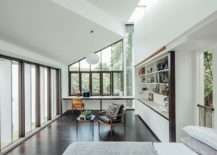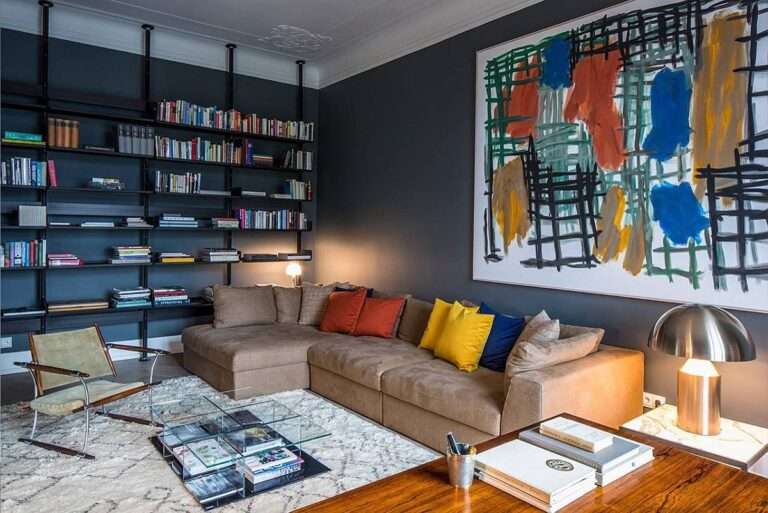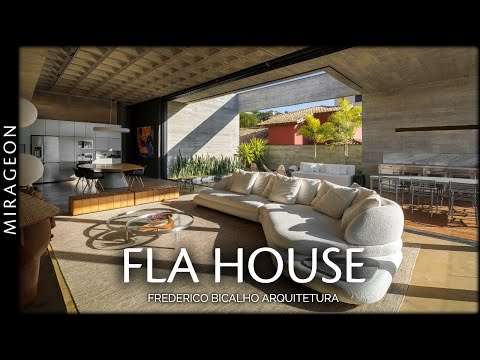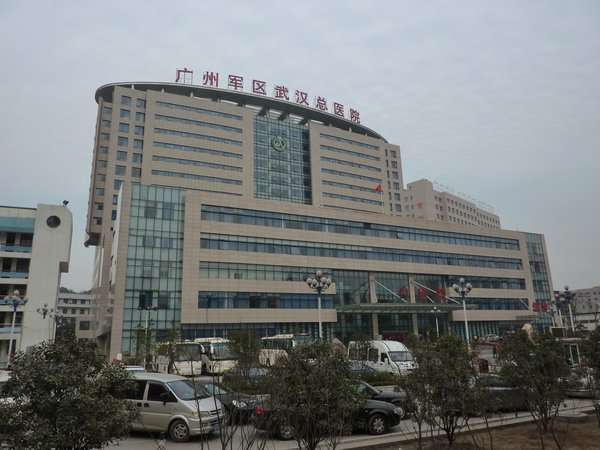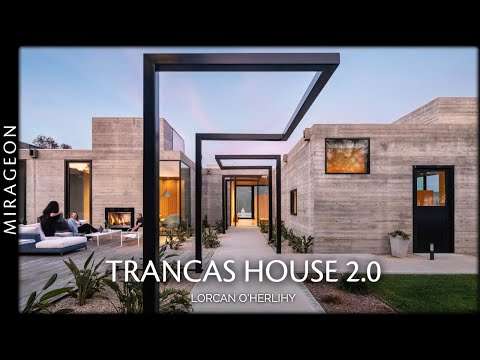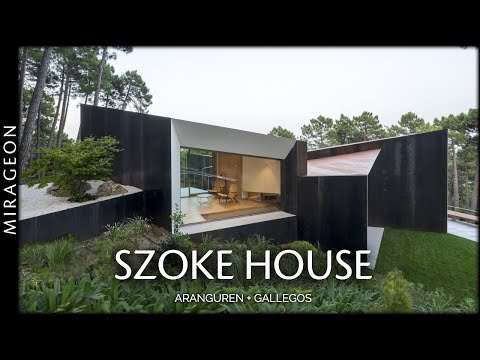exploring Hong Kong’s creative scene at Maison&Objet 2024
Hong Kong creativity takes center stage at the 2024 Fall edition of Maison&Objet in Paris. Eight local studios join designboom for a panel discussion on the city’s creative character and emerging design scene. Bodin Hon of Yellowdot, Charlotte Lafont-Hugo of BEAU Architects, Keith Chan of Hintegro, CL Lam, Dennis Cheung of Studio RYTE, Ken Fun & Kevin Mak of streetsignnhk, Li Kwanho of MLKK Studio, and Monica Tsang share their insights into what makes Hong Kong unique in terms of creativity, as well as their favorite spots and places to visit around the city. During the fair, the studios exhibited a series of their latest works as part of the Hong Kong Eco-Pavilion, LAAB‘s 3D printed structure made of recycled water bottle bricks.
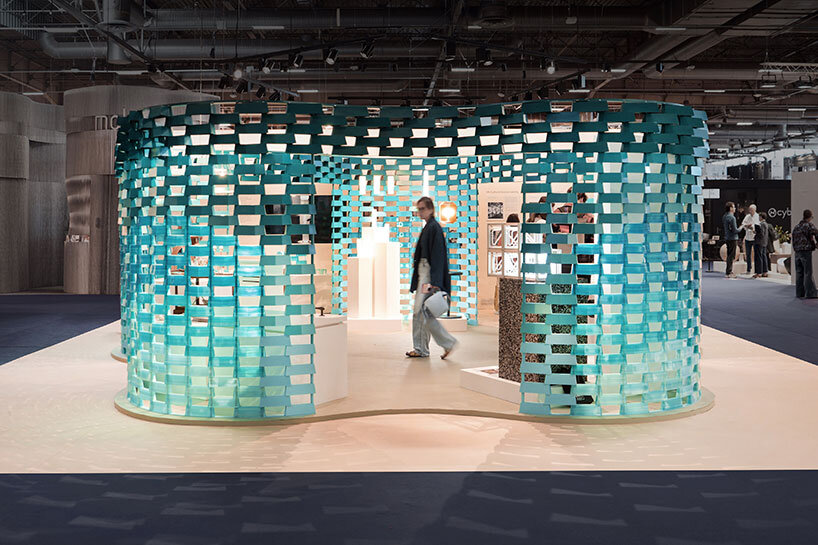
the Hong Kong Eco-Pavilion at Maison&Objet | image by Otto Ng courtesy of LAAB
the evolving design landscape in Hong Kong
The discussion at Maison&Objet (find more here), moderated by Sofia Lekka Angelopoulou, designboom’s Editor-in-Chief, explores a wide range of topics related to Hong Kong’s creative scene, beginning with how the city’s design landscape has evolved in recent years. The panel of creatives highlights a growing emphasis on eco-consciousness within the design community. ‘Hong Kong is well known for its high-rises, off scale infrastructures and quest towards novelty, performance and so-called iconic objects. Its urban and architectural logic used to be always higher, always denser, extremely connected, and above all extremely commercial. Today this scheme is questioned at every level: economical, environmental, but also cultural,’ shares BEAU Architects’ Charlotte Lafont-Hugo (find more here).
‘As we’re growing up now, everything is more eco-conscious. I think in Hong Kong, we’re taking the same spirit of commerce and production, the same skill set, and evolving it into working with eco-materials, reusing materials to create another wave of creativity and design,’ says Bodin Hon of Yellowdot (find more here).
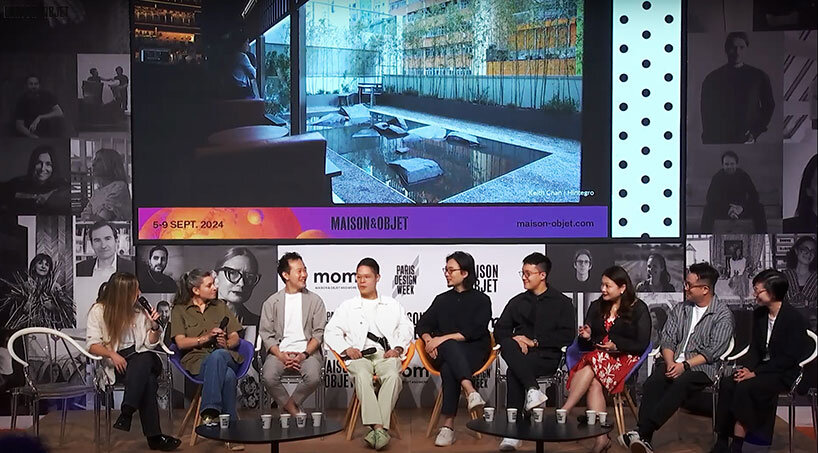
Hong-kong City Guide and its Emerging Design Scene, moderated by designboom | image courtesy of Maison&Objet
what makes the city so unique in terms of creativity?
Discussing the unique character of Hong Kong, Hintegro’s Keith Chan (find more here) shared how the city’s creativity was born from limitations that emerged after the war. ‘Hong Kong was a UK colony, and we combined the two cultures. In the 1950s, after the war, our grandparents were very poor and had few resources,’ he explains. He then referred to terrazzo as an example. While common in Italy and France, terrazzo was not introduced to Hong Kong until after the war, when the technique spread. In the 1950s, people in Hong Kong developed their own version of terrazzo using inexpensive materials that mimicked marble. ‘It has become a unique style of Hong Kong’s interior architecture’. Another example of creativity born from constraint is the abundance of the color green, seen in trams, trains, and even street fans of Hong Kong. ‘Green paint was a leftover from the war, used to paint tanks, and was later sent over after the war ended. Somehow, it became a unique part of Hong Kong’s style,’ Chan mentions. ‘Hong Kong does not have a long story, like Europe. But we do have a unique story’.
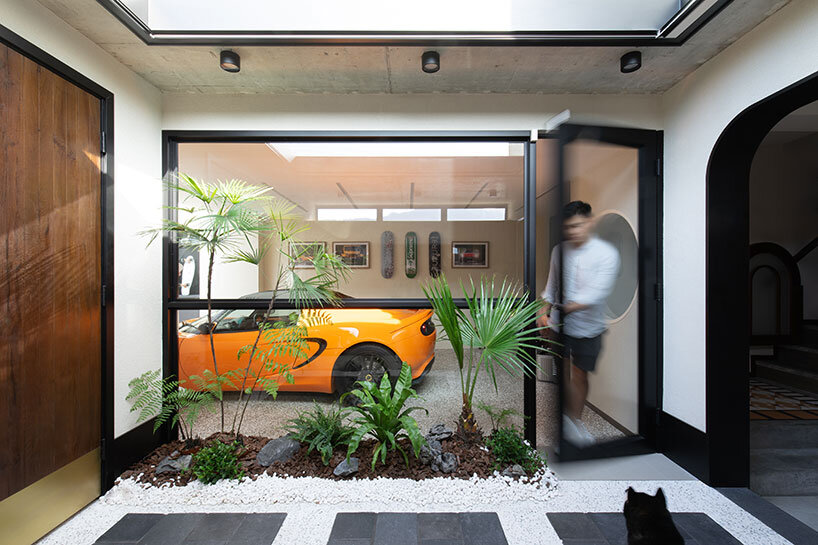
image courtesy of Hintegro
a unique fabric of Dense Skyscrapers and ‘jungle’ Villages
‘In Hong Kong, we actually design by integrating both the high-density urban environment and the natural surroundings. This is something we are strong in — the ability to adapt to different scenarios and situations very quickly,’ says Dennis Cheung of Studio RYTE (find more here). ‘To further address the density of Hong Kong, I think it’s one of the most unique in the world. (…) This is something that, even from our childhood, became the main image of the city,’ adds streetsignnhk’s Kevin Mak (find more here). BEAU Architects’ Charlotte Lafont-Hugo highlights the contrasting coexistence of Hong Kong’s dense urban environment with its nearby ‘jungle’ of verdant villages.‘Hong Kong is both a dense city and a wide natural country park, an overly busy international economical hub and a multitude of quieter fishing villages, etc. This overly stretched dichotomy between nature and culture, local and global is extremely singular and that’s still one of the best card the city can play,’ she explains.
She also emphasizes that Hong Kong’s uniqueness lies in how its creative scene insists on utilizing existing landscapes and local materials, as well as new materials sourced through the city’s international harbor. This approach weaves a broad network of creativity that respects the past, embraces the present, and looks toward the future.
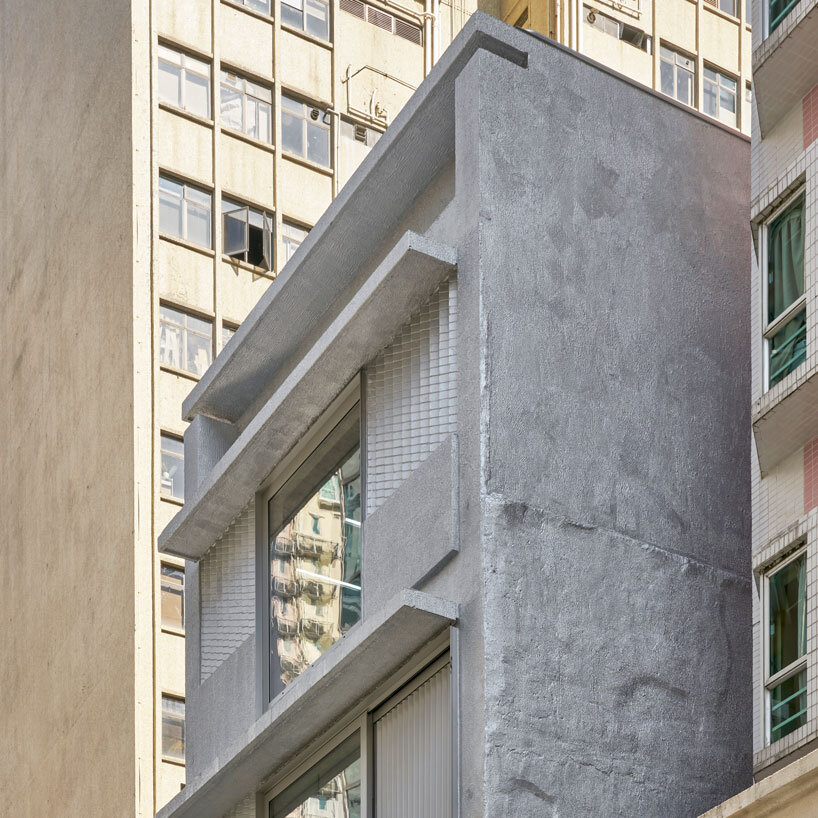
Kiang Malingue Wan Chai | image courtesy of BEAU Architects
Hong Kong’s Strategic Role in Global Design and Manufacturing
Reflecting on Hong Kong’s role in the global design landscape, Dennis Cheung emphasizes the city’s unique geographical position and its significance. ‘Hong Kong has a very unique position. Geographically, it is close to various trades and factories,’ he explains. ‘As Hong Kong people, we benefit from extensive international exposure and can leverage manufacturing capabilities back in China. This allows us to produce and prototype designs much more quickly than in other countries or cities. We have the advantage to experiment with new prototyping and manufacturing methods.’ Monica Tsang (find more here) echoes this, stating, ‘We have a lot of manufacturing in China, so we can execute ideas easily.’
‘The collaboration between designers and producers involves a lot of hidden creativity in the process. Even after creating the product, there’s the commercial side, and that’s kind of why we’re here – to try to scale up each of our ideas so we can reach an international audience. It’s something individuals should experience in their everyday lives, whether it’s lighting, stools, or tiles, all with an eco-conscious theme that really makes an impact,’ says Yellowdot’s Bodin Hon (find more here).
‘Today Hong Kong is still too often reduced to a bunch of iconic towers, flashy interiors or impressive cyberpunk cityscapes but there is an entire world of things about to happen and that, in fact, are just waiting for more realisation from both institutions and the public to rise and shine,’ shares Charlotte Lafont-Hugo. ‘We’re talking adaptive reuse, urban (or not) farming, reinvented (or new) local craftsmanship, singular cultural expression, non human-centric natural landscaping, etc. The list is long!’
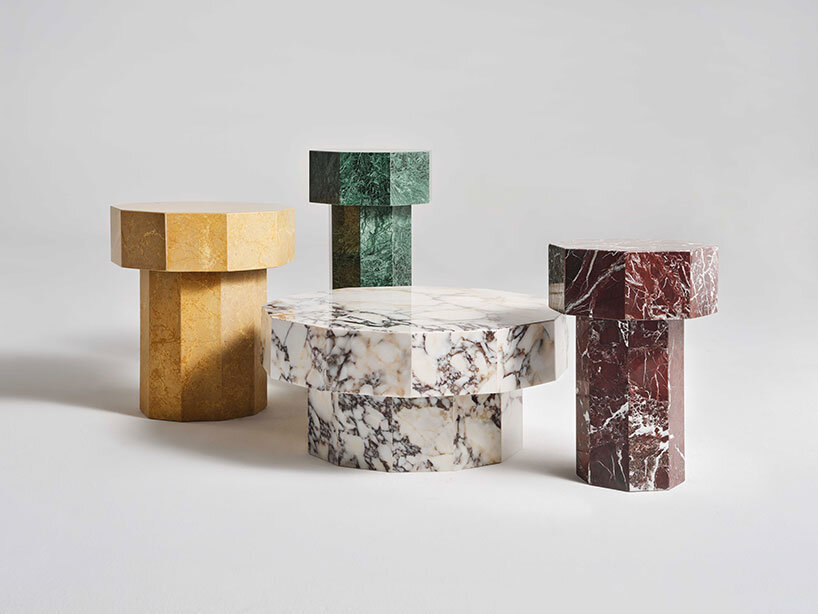
Millstone Rotating Table by Yellowdot | image courtesy of Yellowdot
hong kong guide: creative neighborhoods to visit
Once a manufacturing hub, Hong Kong’s industrial areas are now evolving with boutiques, creative studios, galleries, and cafes reshaping the city’s character. Wong Chuk Hang, in the Southern District of Hong Kong Island, is one such neighborhood where Studio RYTE is located. ‘People can travel around the area to explore. It’s actually very nice to walk around, not just in Wong Chuk Hang but in many other industrial areas that are vibrantly booming,’ says Dennis Cheung. ‘Some areas may not be that pleasant to walk through, but once you enter the industrial buildings, they have large floor spans, plenty of room, and many different things happening inside. It’s almost like Rem Koolhaas’ Delirious New York.’
When asked to suggest a series of must-visit creative spots in Hong Kong, Charlotte Lafont-Hugo proposed an itinerary showcasing the city’s diverse character through a 12-hour day trip. ‘Start with a morning hike at Kadoorie Farm, surrounded by tropical jungle. Then, spend the afternoon at Tai Kwun in Central, a heritage site and contemporary art museum. Finally, end the evening at a rooftop bar in Causeway Bay, where you can take in the dense urban cityscape and experience metropolitan life. That should give you a sense of just how diverse and extreme Hong Kong can be,’ she said.
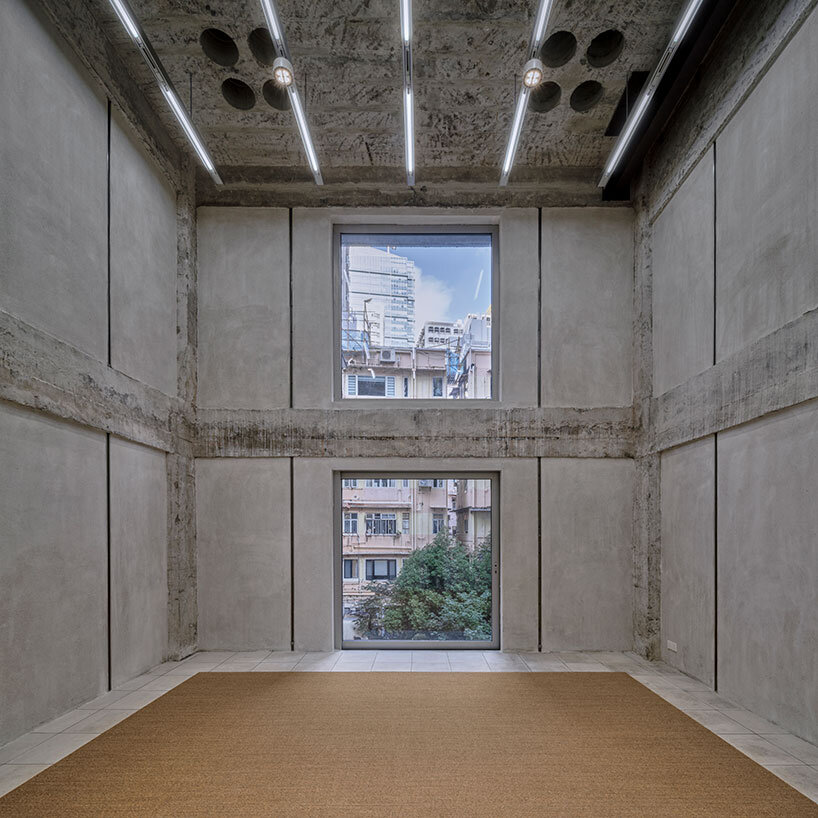
Kiang Malingue Wan Chai | image courtesy of BEAU Architects
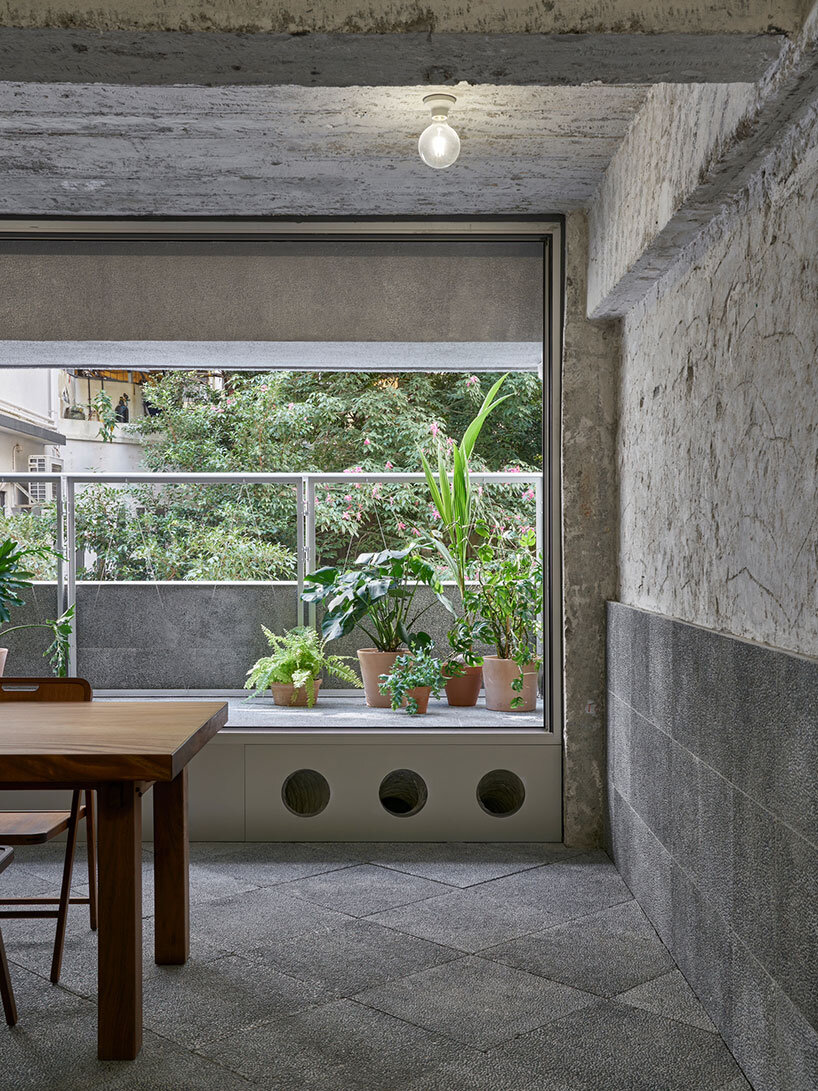
image courtesy of BEAU Architects
